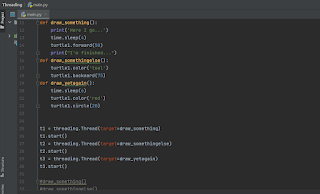One of the great aspects of being neighbor to the United States is
the opportunity to join in as they celebrate various holidays. Thanksgiving,
all about family and food, is particularly festive. So even alone at home, I
fully intend to mark the day American style.
I bought some Velveeta, and look forward to making the recipe on the box,
a pasta in cheese sauce dish. I will be using tuna fish instead of chicken, but
will otherwise be going for it. Should post a photo late afternoon.
And to mark the day, below, a translation from French Wikipedia from the article
on Sociology of the Body.
* * *
source: Wikipedia
translation: BingTranslate/doxa-louise
The sociology of the body is a recent branch of sociology which aims to study the representations and social implications of the human body .
Origins and foundations
The body between biology and culture
The philosopher René Descartes considered in the early seventeenth century that it was easier to talk about the mind than to deal with the body of human beings. The Christian culture of the time forbade scholars to carry out the internal study of bodies. Only early surgeons, and butchers, had a good idea of what the structure of living bodies was. At the time, the modern idea of biology did not exist in the theological debates that permeated philosophy. The human body is considered in Christian Europe as a receptacle for the soul, the divine spark that Descartes himself located in the pineal gland. The Earth is considered central to the European universe of Christianity and human beings are all indebted to a hierarchy that guides them to Rome. The centralization of souls is much more of concern than that of bodies. This Catholic construction was called into question by the religious wars which were then the main cause, along with epidemics, of the destruction of bodies in Europe. At that time, the body envelope was considered secondary in relation to the souls whose migration to Paradise was to be ensured. These beliefs then gradually fades as does the influence of the churches. The modern individual is born as a result of his identification with his body rather than his soul. Legal ownership of one's own body often escapes him in law, especially among slaves who have the status of alienable object. The body becomes social with the individual, and therefore malleable, at the moment when freedom of action makes it the place of exercise of its presence in society. The family tradition studied by anthropologists (Franz Boas) in early societies shows that this moment (Renaissance in Europe) is when institutions begin to control bodies more than to worry about the future of souls. The control of bodies is exercised first over that of women, whose social acceptance derives from immediately visible physical constraints. Sociology, a product of modernity, merely repeats the work of anthropologists on bodies, in particular, in France, that ofMarcel Mauss. The modification of bodies was previously mainly studied by doctors who, in combating diseases, carried out the first investigations into their social condition (hygienism). Medicine opens an accepted scientific study of the body for therapeutic purposes that gives social control powerful instruments to discriminate against individuals but also, to them, means to increase their autonomy. The body that became human hundreds of thousands of years ago gradually acquires a status of receptacle of the individual who manifests his will to dispose of it fully.
...
HAPPY THANKSGIVING TO ALL!
Couldn't resist this clever bit of coding. Looks like the screen is moving both right and
down at the same time. (The code gets cleared on the sine and cosine function at every turn).
Needed to reduce the screen size to 600x600 for my computer. Upped the turtle speed to 7!
My Velveeta casserole turned out quite tasty:


.PNG)
.PNG)










.PNG)








.PNG)




.PNG)
.PNG)
.PNG)
.PNG)
.PNG)











.PNG)
.PNG)
.PNG)
.PNG)


